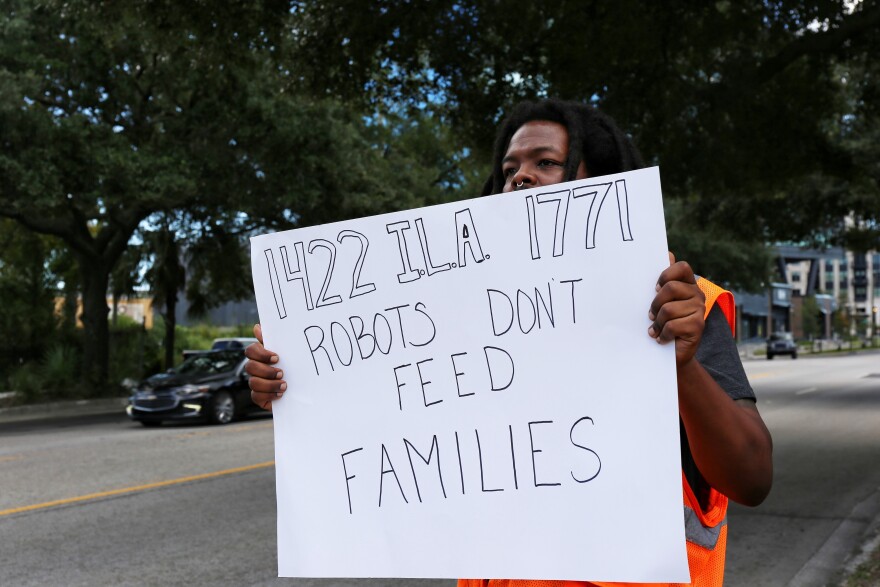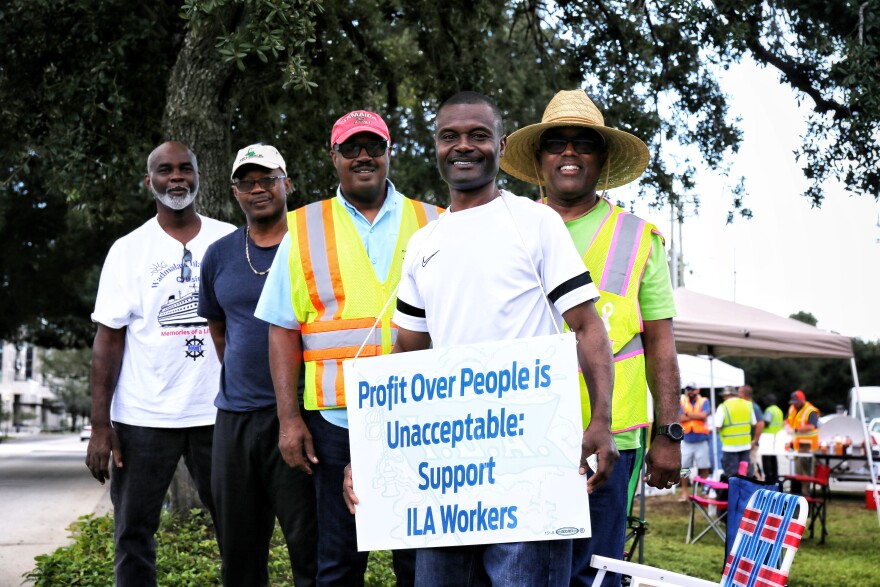Some 45,000 dockworkers nationwide are back on the job after the International Longshoremen's Association announced late Thursday it's a reached tentative agreement on a new contract.
The agreement means the three-day strike is suspended until Jan. 15 to allow time for contract negotiations with the U.S. Maritime Alliance which represents ports and shipping lines. But for now, both sides say they've come to terms on wages.

Just hours earlier in Charleston, dozens of dockworkers waved signs along Morrison Drive. They were often greeted by honking motorists.
Many said they'd rather be unloading docks and getting paid than fighting for fair wages and a ban on automation. The latter, they believe threatens jobs.
They were seeking a 77% pay raise over six years (roughly 13% per year) to adjust for inflation and years of small raises. But when an agreement wasn't reached, dockworkers walked off the job Tuesday.
“We’re not the bad guys,” Randy Campbell said. He's the Vice President of ILA local 1771.
“You’ve got these foreign owned shipping companies that are coming here. They want to automate ports and run off all of these good paying American jobs.”
Campbell was hoping for a swift end to the strike. He's worked with the union in Charleston for 40 years.
“I have witnessed friends being killed out there. We sacrificed through COVID and lost members,” he said.
“But we worked every day, making sure the stores were stocked, and the shelves were good.”

The strike had raised fears that stores would not be able to stay stocked at a critical time, the aftermath of Hurricane Helene. And that if prolonged, it could re-ignite inflation and significantly disrupt the nation's supply chain.
South Carolina lawmakers were clearly worried as they urged President Joe Biden Wednesday to intervene during a tour of the state’s devastation from the then tropical storm.
“I cannot tell you how seriously this will jeopardize our recovery in South Carolina," Senator Lindsey Graham said.
Both he and Governor Henry McMaster urged President Joe Biden to intervene. The president didn't indicate that he would.
The port in Charleston is one of the state’s largest economic drivers, generating a nearly $90 million dollar impact each year.



